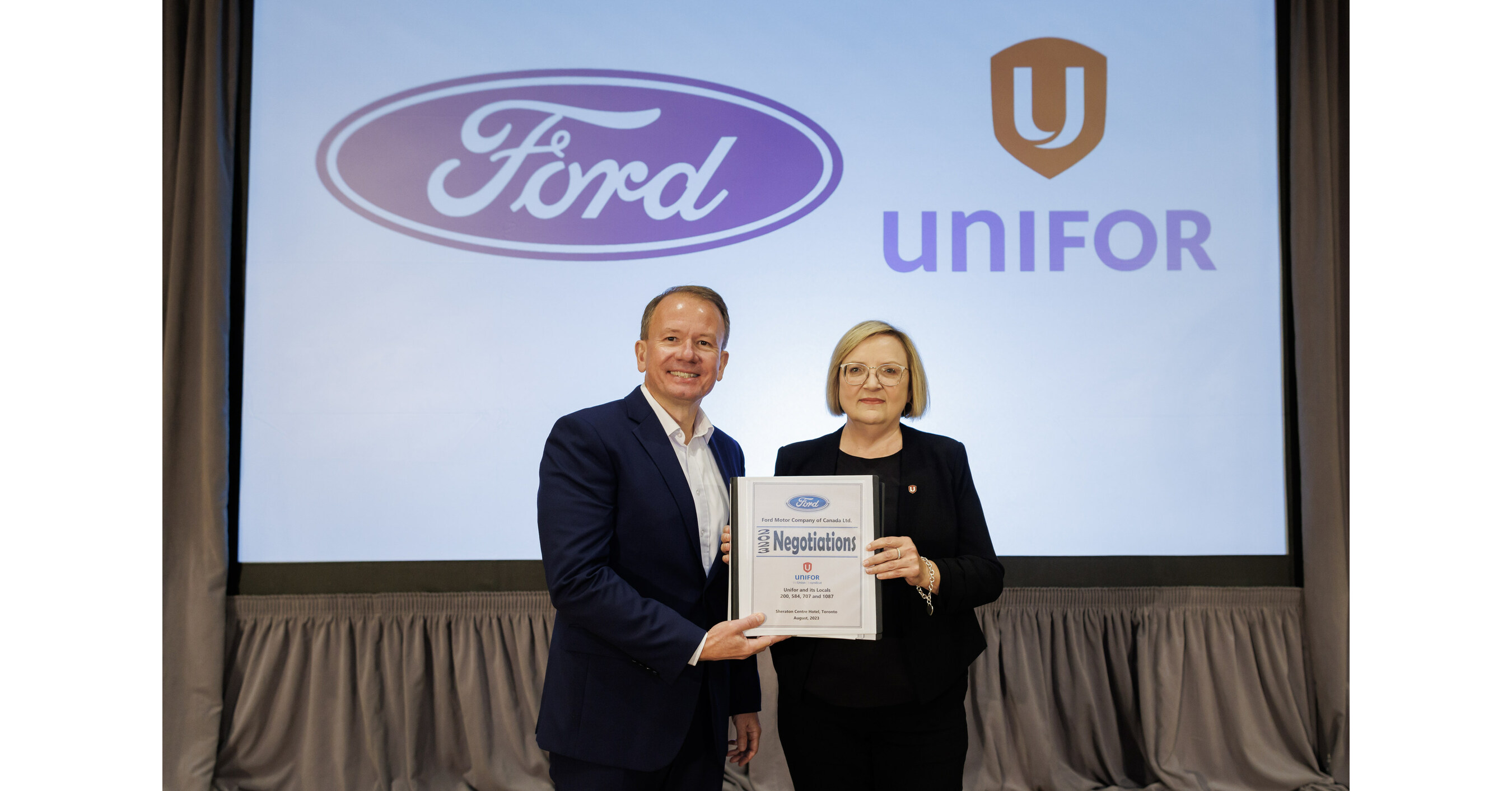Latest News
- Four years after Indigenous woman dies in Niagara Hospital, family still waiting for coroner's investigation
- Lawyer: British Columbia RCMP officer should be fired or resign immediately
- B.C. government looks to offer loan guarantees to property owners in Cowichan Aboriginal title area
- Uber driver's account in Toronto suddenly deactivated; only source of income cut off after 'duplicate account' claim
- TDSB education chief fired by provincial supervisor; sweeping changes at Canada's largest education board
Latest Ads
-
Jasmine Jewel
Call
-
Omidan group
Call
-
Amir Madanpour
Call
-
Dimo studio
Call
-
Yorkacademy
Call
-
Maryambagheri
Call
-
Shishlix Restaurant
Call

Labor law of the Canadian automotive sector to the contract of Ford and Unifor
Historic Vote: Canadian Auto Workers Approve Ford and Unifor Contract
Canada's largest private-sector labor union, the country's auto workers, have voted in favor of a new three-year contract with automaker Ford. The contract includes wage increases, entry bonuses, and reinstating cost-of-living allowances.
"Lana Payne," President of Unifor, stated in a release on September 24, 2023, posted on the union's website: "The votes have been counted, and you have approved a three-year agreement that will bring significant gains to auto workers."
Ford, in a statement released on Monday, also referred to this deal as historic and announced that the company had agreed to the largest wage increase proposal in Canadian history. The automotive company currently employs approximately 5,600 union members in Oakville and Windsor, Ontario.
Unifor has not disclosed the percentage of workers who voted in favor of this agreement or the details of the results. Ford employees last went on strike for six days in 1990. Consequently, this approval process will also be used for negotiations with automakers Stellantis or GM in the future. Unifor has not specified which company it will negotiate with next.
**What the members voted for:**
The Canadian union announced that Ford Motor Canada proposed a 10% wage increase for the first year of the trial agreement with Unifor, followed by 2% and 3% increases for the second and third years.
This deal also adjusts the pay scale. Under this agreement, a new production worker will earn $29.67 per hour and will reach the top of the wage scale in four years instead of eight, with an hourly income of $42.39.
The contract also includes a $10,000 productivity and quality bonus for all permanent workers in active positions within the company and a $4,000 bonus for temporary workers.
Unifor stated that this deal also involves increases in basic monthly benefits and special cost-of-living allowances in all classification codes in defined benefit retirement programs. According to the details of the contract released by Unifor, wage increases for some senior employees during the contract term will vary from 19% to 25% depending on the job type.
Additionally, this agreement includes living cost assistance, development, and advancement for Ford Motor factory workers in Windsor. Unifor also mentioned that Ford has confirmed its commitment to transform the Oakville facility into an electric vehicle assembly plant, expected to begin operations in 2025.
Meanwhile, thousands of active workers in the auto sector, along with the United Auto Workers (UAW) union, continue their strike in the United States. Nearly 13,000 people are on strike in three auto plants and 38 parts distribution centers across the United States.
The United Auto Workers union has targeted the parent companies Chrysler, Stellantis, Ford, and General Motors in their protests.
Unifor is expected to use a similar negotiation template in Canada to leverage existing standards for active workers at two other auto companies. "Shawn Fain," the head of UAW, had previously urged Detroit Three to increase wages by 36% during the four-year, four-day workweek contract and eliminate step wages inside factories so that automakers could hire new employees.
Challenges for Suppliers Ahead
"Fain" stated on Friday, September 22, that Ford has improved its agreement with the union, but there are serious issues with the proposals from Stellantis and GM.
President Joe Biden is also expected to attend the strike in Michigan on September 26 to support the striking workers.
UAW's action is likely to cause disruptions at distribution centers and dealerships and repair centers in the United States, but it is unlikely to pose challenges in Canada.
However, if the auto workers' strike leads to a halt in production at three auto plants, parts suppliers in Canada may also face challenges.
Suggested Content
Latest Blog
Login first to rate.
Express your opinion
Login first to submit a comment.
No comments yet.


































